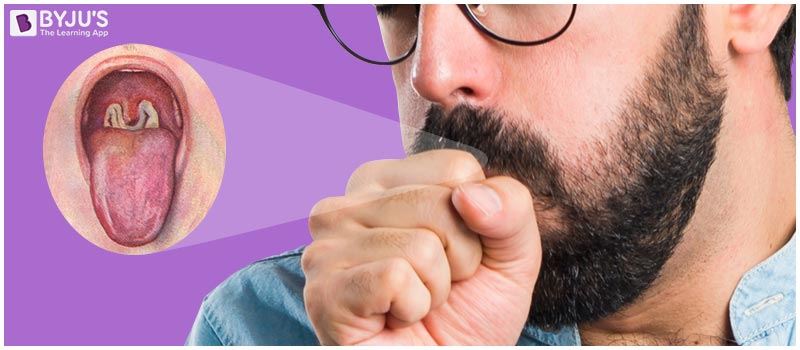Table of Contents
- Diphtheria
- Symptoms of Diphtheria
- Types of Diphtheria
- Treatment of Diphtheria
- Prevention of Diphtheria

Diphtheria
Diphtheria is a severe communicable and bacterial infectious disease that causes inflammation of the mucous membranes by forming a false membrane in the throat which creates a problem while swallowing food and during breathing. It can also damage nerves by the bacterial toxin present in the blood. Currently, this syndrome is rare in developed countries. This disease spreads easily from one person to another but can be prevented by the use of vaccines.
Symptoms of Diphtheria
The signs of diphtheria appear in a short period of time, within three to five days after the infection has occurred. Some people do not feel any symptoms, while others do feel slight symptoms of a common cold. The most common and visible symptom of diphtheria is grey, thick covering on the tonsils and throat. Other usual symptoms include:
- Fever
- A loud cough
- Swollen neck
- A sore throat
- Feeling discomfort
If the infection is prolonged, further symptoms may develop.
- Difficulty in swallowing
- Slurred speech
- Sweating
- Rapid heartbeat
- Redness and ulcers in the affected region
Types of Diphtheria
- Respiratory diphtheria
- Cutaneous diphtheria
- Malignant diphtheria
- Nasal diphtheria
Treatment of Diphtheria
The first step in treating diphtheria is an antitoxin injection. This is used to minimize the effect of the toxins produced by the bacteria. The doctors also prescribe antibiotics, such as erythromycin and penicillin to clear the infection. During the treatment, patients are instructed to stay in the hospital in order to avoid the spread of infection to others.
Prevention of Diphtheria
Diphtheria can be prevented to an extent by the use of vaccines and antibiotics. The vaccine for diphtheria is called DTaP. It’s normally given in a single shot with vaccines for diphtheria, tetanus, and pertussis. The DTaP is given in five shots to the children of the ages mentioned below:
- 6 months
- 12 to 18 months
- 4 to 6 years
A child may be allergic to the vaccine in rare cases. This may result in hives or seizures that last only for a few days from the date of vaccination.
Vaccines last only for ten years, and the child needs to be vaccinated again at the age of 12. But for adults, it’s suggested that they get a combination shot of tetanus and diphtheria. This is called the tetanus-diphtheria (Td) vaccine.
Some diphtheria develops if there is poor hygiene. So it is highly recommended to maintain good hygiene by regular washing hands before eating and cooking and by keeping surrounding clean and tidy.
To learn more about this diphtheria and other infectious diseases, visit BYJU’S.

Comments